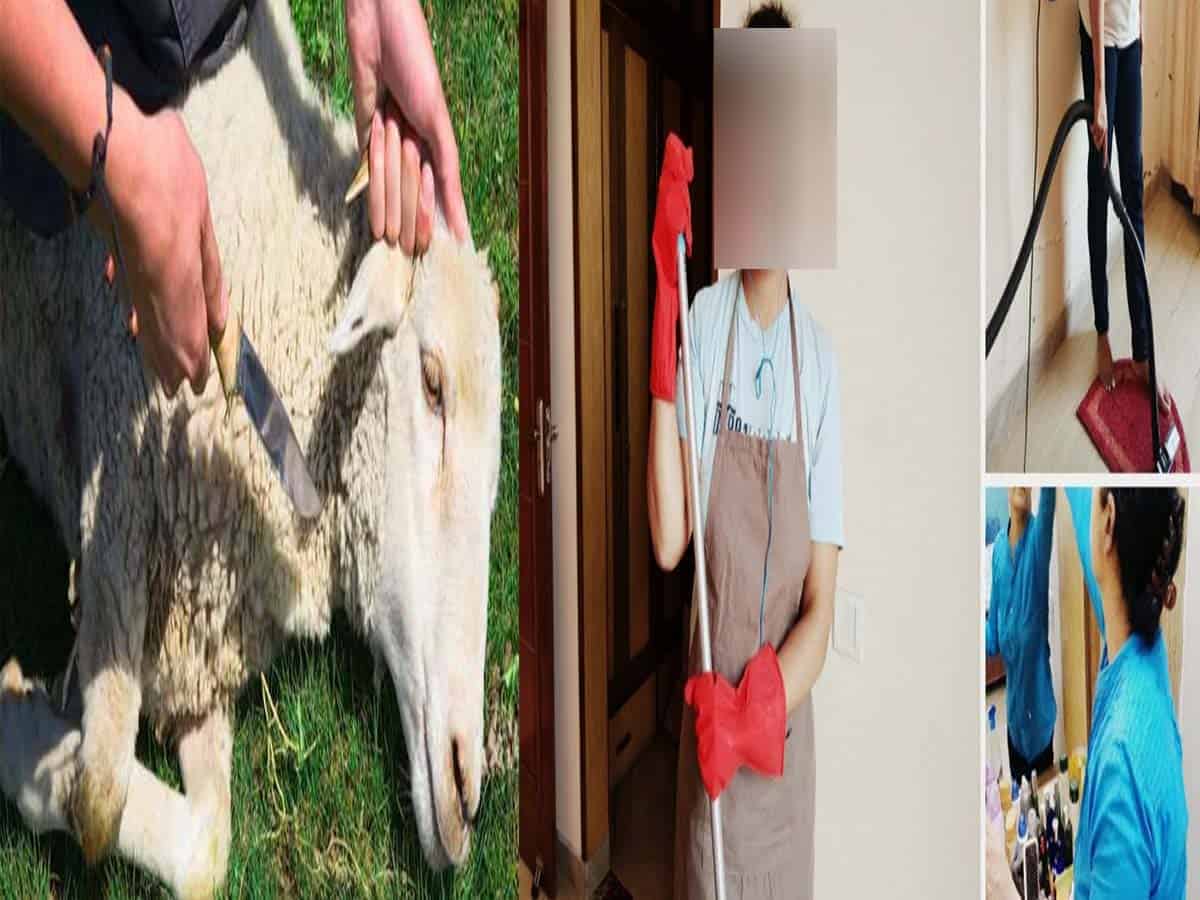Hyderabad: With three days left for the festival of Eid- al-Adhathe doctors have advised the community to stay cautious especially women who usually host the feasts.
The festival does not end with just sacrifice as there are more tasks like distributing meat in packets, containers, preparing lavish food and delicacies.
The work is said to be equal for both the males and females of the house every Eid. Commonly, the man’s work involves bringing the animal, sacrificing it and finally going to relatives for distribution. While, the rest of the functions are left for the women which include cooking, packing in different containers ready and lastly cleaning the entire house by the end of the day.
Meanwhile, the festival entails a gathering of relatives and friends to add to the celebrations. Usually, the younger brother and sisters tend to go to the eldest sibling for the celebration.
Due to the pandemic spread, there is concern about whether this practice must adhere to this year and what precautions must be taken with women’ cases being lower. It has been found during the course of a pandemic that most of them have not been aware or able to understand the prevention aspects properly. They have unnecessarily exposed themselves to asymptomatic carriers, which has lead to infections. During the festival, it is advised that due to the different rituals, prayers and preparations of different delicacies, women must wear a mask at home and follow social distancing norms.
“The pandemic has made it very important for the festival to be a low-key affair. Therefore, having a large gathering or family get together must strictly be restricted.
Moreover, it is always recommended that one must avoid wide-scale distribution,” said Dr Mazhar Ali.
Both the bucher and his tools must properly sanitised and only one or two family members must be there during the sacrifice while the rest must keep away. While, those packing or distributing the meat must use sanitisers periodically, wear gloves and a mask all the time.
“Each and every member of the family must wear a mask, gloves and face shield until the entire procedure of sacrificing and all those who already are sacrificing an animal must avoid taking meat from another,” added Mazhar Ali.
Family members who are going out for sacrifice must frequently wash hands cover their faces with masks and shields and also maintain a distance of five feet at the place of sacrifice. It is very important that when they come home, they first bathe, sanitise themselves and only then meet other family members.
Lastly, at the end of the day, the entire house must be sanitised and all the family members must either have a glass of kadha or warm water after a bath.

